2018’s Favourite Reads
By Newsline Admin | Bookmark | Published 6 years ago
Rafia Zakaria
 Empress: The Astonishing Reign of Nur Jahan by Ruby Lal
Empress: The Astonishing Reign of Nur Jahan by Ruby Lal
Feminist historiography and the excavation of heroines from historical annals is one of the most heartening intellectual developments of this century. Usually, it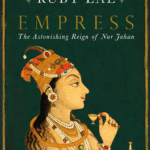 has been reserved for Western heroines. Ruby Lal’s book is a riveting and engaging account of the 20th wife of a Mughal king. In addition to being a painstakingly researched history, it is also a wondrous trip into the world of the Mughals. Lal’s prose makes the Mughal caravans of hundreds of thousands of people, the resplendence of the court and the struggles of an ambitious woman, come alive.
has been reserved for Western heroines. Ruby Lal’s book is a riveting and engaging account of the 20th wife of a Mughal king. In addition to being a painstakingly researched history, it is also a wondrous trip into the world of the Mughals. Lal’s prose makes the Mughal caravans of hundreds of thousands of people, the resplendence of the court and the struggles of an ambitious woman, come alive.
The Runaways by Fatima Bhutto
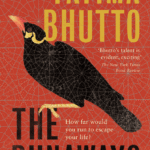 Modern Pakistan, interlaced with its attendant contradictions and conundrums, is also the setting for Fatima Bhutto’s latest novel, The Runaways. The protagonist, Anita, lives in a slum with her mother, who works in the homes of the city’s wealthy, massaging their bones and delivering them from pain. A similar deliverance is in store for Anita herself when she discovers her neighbour’s treasure trove of books. The book’s two other protagonists, Sunny and Monty, are from divergent backgrounds, but they too, like Anita, are running from something. The themes of radicalism (of all sorts) is a thread that runs through the lives of the characters representing the complexity of ideology and the perpetual human search for meaning. Eloquent and erudite, while also being accessible, the book was a treat to read.
Modern Pakistan, interlaced with its attendant contradictions and conundrums, is also the setting for Fatima Bhutto’s latest novel, The Runaways. The protagonist, Anita, lives in a slum with her mother, who works in the homes of the city’s wealthy, massaging their bones and delivering them from pain. A similar deliverance is in store for Anita herself when she discovers her neighbour’s treasure trove of books. The book’s two other protagonists, Sunny and Monty, are from divergent backgrounds, but they too, like Anita, are running from something. The themes of radicalism (of all sorts) is a thread that runs through the lives of the characters representing the complexity of ideology and the perpetual human search for meaning. Eloquent and erudite, while also being accessible, the book was a treat to read.
The Sensational Life and Death of Qandeel Baloch by Sanam Maher
Speaking of ambitious women, the life of slain YouTube star, Qandeel Baloch, is perhaps one of the most incredible accounts of a woman transforming herself. Sanam Maher’s account captures just how a young girl from Multan dumped an abusive husband and restricting family to become a performer. Here is a story of how access to the virtual world has changed Pakistan, creating both opportunity and moral ambiguity. Maher does a fantastic job of bringing out the verve and vibrancy of a woman who tried to change things and almost succeeded.
 Daniyal Mueenuddin
Daniyal Mueenuddin
Boys in Zinc
By Svetlana Alexievich
Alexievich, who was awarded the Nobel Prize in 2015, based this book on interviews of Soviet soldiers who fought in Afghanistan and of their families. The 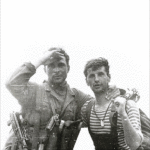 stories that her subjects tell are painful, their traumas brutal and obscene. This book shows us, in vivid detail, what was done in Afghanistan during those early years of the war, and suggests what is being done now, and what will continue to be done in the foreseeable future. She shows us what it looks like, what it feels like, what this war has done to the soldiers and support personnel and to their families. This is the bloody fabric of a 50-year-long tragedy. She makes it real.
stories that her subjects tell are painful, their traumas brutal and obscene. This book shows us, in vivid detail, what was done in Afghanistan during those early years of the war, and suggests what is being done now, and what will continue to be done in the foreseeable future. She shows us what it looks like, what it feels like, what this war has done to the soldiers and support personnel and to their families. This is the bloody fabric of a 50-year-long tragedy. She makes it real.
Don’t Save Anything
By James Salter
This is the last book we’ll see from the great James Salter, who died in 2015, a collection of his occasional pieces. It’s not his best work. A Sport and a Pastime is probably his greatest achievement – a masterpiece of prose and mood and of eroticism. (Salter writes about sex better than anyone ever – high praise, as it’s harder to write well about sex than about anything else). However, Don’t Save Anything is Salter at his most genial and inviting, telling stories with which he might beguile you over a dinner table. He’s seen a lot, he’s great company, and he writes like a dream.
How to Change Your Mind
By Michael Pollan
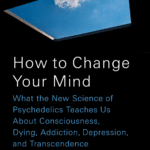 Pollan has quite literally taken one for the team. In the 1960s, LSD and other psychedelic drugs ripped the lid off the sensibilities and politics and aesthetics of the western world, to the great confoundment of the governing classes. Consternation turned to outrage, and these drugs were pulled off the shelves and classified as dangerous narcotics, bringing to a halt many years of fruitful research studying their beneficial medical uses. However, scientists have recently again been quietly studying the use of these compounds in treating PTSD, in palliative care for the terminally ill, and also as a tool to study the nature of consciousness and of the relationship of the brain to the mind. For those of you who are on the fence about whether microdosing can make you the person you always wanted to be – this is your book.
Pollan has quite literally taken one for the team. In the 1960s, LSD and other psychedelic drugs ripped the lid off the sensibilities and politics and aesthetics of the western world, to the great confoundment of the governing classes. Consternation turned to outrage, and these drugs were pulled off the shelves and classified as dangerous narcotics, bringing to a halt many years of fruitful research studying their beneficial medical uses. However, scientists have recently again been quietly studying the use of these compounds in treating PTSD, in palliative care for the terminally ill, and also as a tool to study the nature of consciousness and of the relationship of the brain to the mind. For those of you who are on the fence about whether microdosing can make you the person you always wanted to be – this is your book.
Owen Bennet Jones
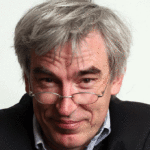 The Exile: The Flight of Osama bin Laden
The Exile: The Flight of Osama bin Laden
by Cathy Scott-Clark and Adrian Levy
This is Levy and Scott- Clark’s best work yet. It contains astonishing details of how Iran offered to hand over Al Qaeda’s leadership to the US and Washington said no. This is a deeply researched, convincing account.
Kargil to the Coup: Events that Shook Pakistan by Nasim Zehra 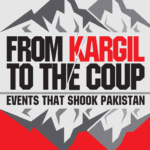
This is another brilliant piece of investigative journalism. Nasim Zehra pieces together how the Pakistan Army went to war without telling the government.
Pakistan’s Nuclear Bomb: A Story of Defiance, Deterrence, and Deviance by Hassan Abbas
A fascinating account of Pakistan’s nuclear programme. This book shows how nuclear issues impacted domestic politics not only after the tests, but also during the 1990s.
Sarah Ansari
Citizen Refugee: Forging the Indian Nation after Partition
By Uditi Sen
As a historian interested in the longer-term impact of Partition, I really like the way in which Sen’s innovative study illustrates how far class, caste and gender moulded refugee agencies after 1947, in the process fracturing refugee experiences of rehabilitation in radical ways. The fact that she focuses primarily on eastern India brings a welcome new dimension to the present understanding of Partition’s impact in terms of patterns of governance, discourses of citizenship and popular politics in South Asia.
Brazen: Rebel Ladies who rocked the World
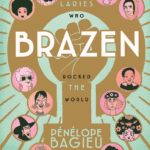 By Pénélope Bagieu
By Pénélope Bagieu
One of the best graphic books that I have ever encountered, aimed at young readers but equally captivating for adults too. Exploring the lives and achievements of 30 “feisty women,” some much better known today than others, Bagieu reminds us that too many great women’s stories have been lost to history and why it is so important to keep the indomitable female spirit alive!
Fire and Fury: Inside the Trump White House
By Michael Wolff
An international bestseller that was hard to ignore in early 2018 when just purchasing a copy was described by one US critic as an “act of protest” in itself! I found this insider account of the early Trump administration a gripping though uncomfortable read, but particularly revealing when discussing the warring factions that shaped Trump’s Presidency during its first year, and which no doubt continue to battle it out in the White House.
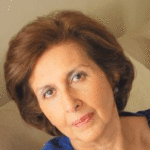 Muneeza Shamsie
Muneeza Shamsie
Warlight
By Michael Ondaatje
Ondaatje is one of my favourite novelists. He returns to World War II in his new, riveting novel Warlight but provides an unusual focus: in the post-war era, the almost-unreal changeover from wartime to peacetime. In this uncertain era, the ordinary people appear to, or try to, resume normal daily lives but this belies their unspoken, and often dangerous war-time feats or experiences. Nathaniel, the narrator is 14 and his sister, Rachel 16 in 1945, the year his tale begins. Their parents have ostensibly left for Singapore, leaving them in boarding school and with a mysterious guardian, the children nickname ‘The Moth.’ Nathaniel and Rachel’s transition from adolescence to adulthood is inextricably linked to the strange world inhabited by The Moth and his smuggler-friend, they call ‘The Darter.’ Above all, brother and sister are haunted by the abiding mystery of their mother, her often-unknown whereabouts and activities in wartime, peacetime and the onset of The Cold War.
Circe
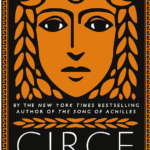 By Madeleine Miller
By Madeleine Miller
Madeleine Miller has followed up the award-winning The Song of Achilles (2012) with another spellbinding novel Circe, which is narrated by Circe herself and is replete with spectacular imagery of the heavens, the natural world and that of gods and mortals. Her tale gives a new feminist interpretation to Circe, best known as the wicked witch in The Odyssey, whose spells Odysseus had to resist. The novel describes her as nymph and an immortal, born into great privilege, the daughter of Helios, the sun god, but she is not beautiful. Also, she is headstrong, given to asking awkward questions, and drawn to those lesser beings: mortals. She discovers she has forbidden magic powers, which earn her the displeasure of both Zeus and his rival, Helios, her father. She is cast out into an island. There she must find her own sense of empowerment and self. Other legendary figures interwoven into her tale include Hermes, Apollo, Ariadne, Icarus and the Minotaur.
Go, Went, Gone
By Jenny Erpenbeck, translated from the German by Susan Bernovsky.
 This tight, clever, bestselling novel, long-listed for the Booker Prize and the Dublin IMPAC Award, provides a moving insight into the plight of refugees in Europe. The main protagonist, Richard, is an elderly German academic (originally from East Berlin) just retired from Humboldt University. As he tries to cope with his new life and its solitude, he is confronted with memories of his ex-lover, his late wife and his childless marriage. His encounter with a group of refugees camped in a square, leads to his interest in each of them and their lives. As he discovers more about their troubled homelands including Niger, Nigeria and Ghana, and their subsequent sufferings in Europe, he starts to understand the tragedies they have to cope with. The friendship and succour that he and his new friends offer each other, also makes a universalist comment on a shared humanity and interweaves the conflicts, violence and traumas witnessed by Germany across the twentieth century which, in turn, also finds reverberations in power play and the cruelties of history and indeed ancient mythology.
This tight, clever, bestselling novel, long-listed for the Booker Prize and the Dublin IMPAC Award, provides a moving insight into the plight of refugees in Europe. The main protagonist, Richard, is an elderly German academic (originally from East Berlin) just retired from Humboldt University. As he tries to cope with his new life and its solitude, he is confronted with memories of his ex-lover, his late wife and his childless marriage. His encounter with a group of refugees camped in a square, leads to his interest in each of them and their lives. As he discovers more about their troubled homelands including Niger, Nigeria and Ghana, and their subsequent sufferings in Europe, he starts to understand the tragedies they have to cope with. The friendship and succour that he and his new friends offer each other, also makes a universalist comment on a shared humanity and interweaves the conflicts, violence and traumas witnessed by Germany across the twentieth century which, in turn, also finds reverberations in power play and the cruelties of history and indeed ancient mythology.
 Nusrat Khawaja
Nusrat Khawaja
Killing Commendatore
By Haruki Murakami (translated from Japanese by Philip Gabriel and Ted Goossen)
An artist moves into a house in the mountains that belongs to an older, renowned artist who is now in a nursing home. The artist is trying to find himself and his true style of painting and believes the immersion in solitary surroundings will help him do that. However, he is not as alone as he thinks. Strangers seek him out. He starts to experience inexplicable phenomena. The lines between what is normal and paranormal interweave. Murakami’s hyper-realist style of writing combined with supernatural occurrences make Killing Commendatore a surreal book to read. The plot is inconclusive but the point of this long novel is to swim along with its unpredictable currents and submit to the uncertainty.
The White Book
By Han Kang (translated from Korean by Deborah Smith)
The soft, sad melody of this unusual book is created with a gossamer touch. The short chapters are like poetry and they have an extraordinary ability to evoke melancholy. A city and a dead baby sister become linked in a strange spatial relationship of what signifies absence and presence. The colour white is a portal through which many hues of existence are revealed. There are a few photographs included with the text which contribute to the book’s contemplative character.
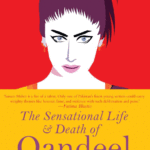 The Sensational Life & Death of Qandeel Baloch
The Sensational Life & Death of Qandeel Baloch
By Sanam Maher
This gritty book was written after the murder of Qandeel Baloch, a self-made feisty non-conformist who achieved fame yet remained enigmatic. Sanam Maher has engaged in robust investigative journalism that covers far more than Qandeel’s life and death. She has framed her inquiry from a sociological angle. The content is revelatory and quite disturbing. It goes to the heart of the moral contradictions that beset our society. It is also a good study of the way media operates at the individual and national level.


